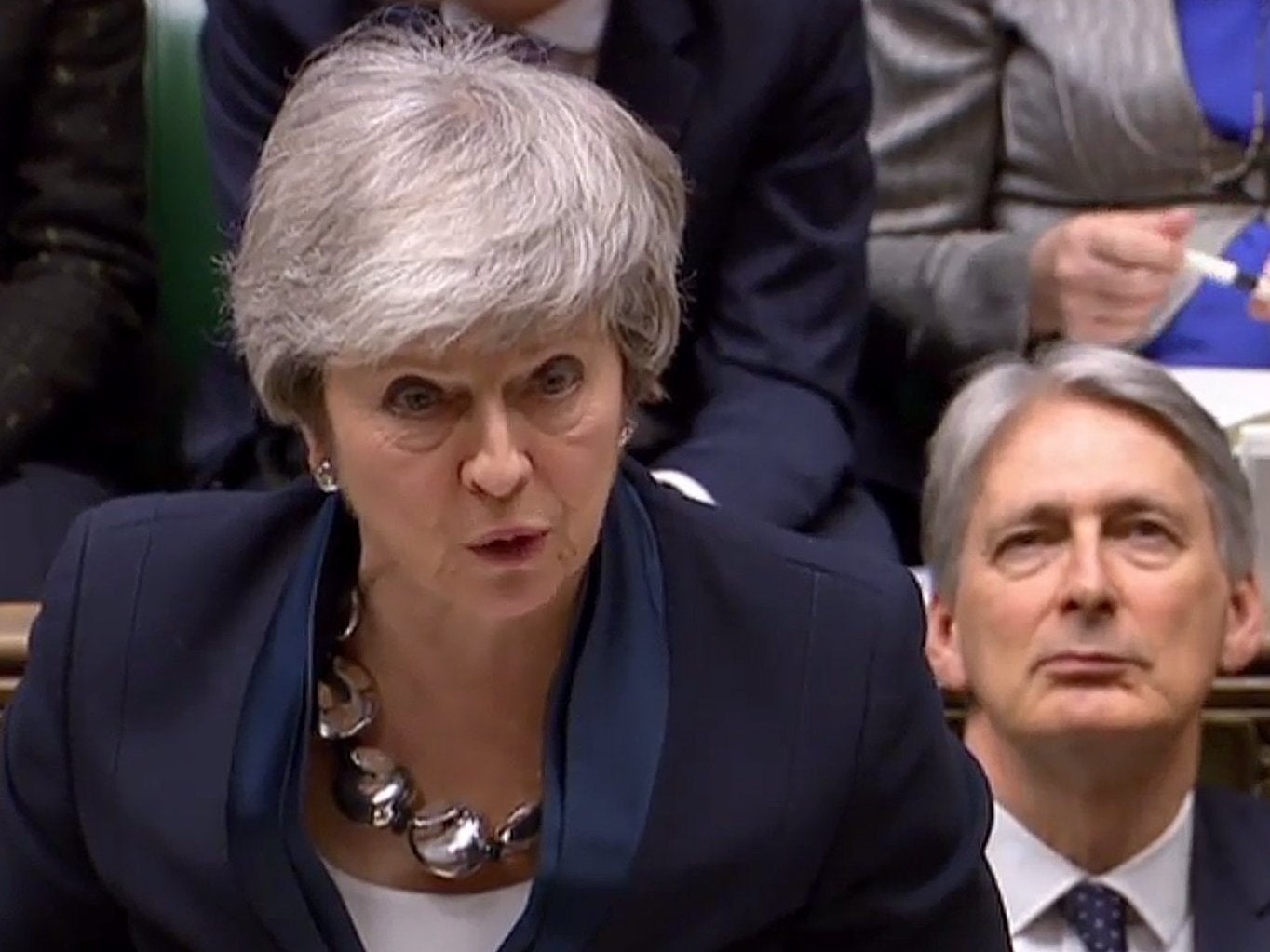Why is the prime minister considering a free vote for her MPs over a no-deal Brexit?
Analysis: The question is not whether Theresa May faces defeat, but whether she can avoid disaster, as Sean O'Grady explains


Normally, prime ministers do not like to rely on free votes – ones where the party managers, the whips, allow their party’s MPs to follow their consciences.
Governments prefer to use the traditional weapons of discipline and patronage to incentivise their MPs to vote in line with official policy.
There may be rebels, but they can be dealt with in a variety of ways, depending on the seriousness of a revolt. If they are ministers they would be expected to resign, or get sacked.
Free votes are usually reserved for well-established issues of conscience – notably matters such as abortion, capital punishment, fox hunting – and for relatively minor bits of uncontentious legislation, including, sometimes, private members’ bills.
Occasionally they can be used as a way of pressuring the opposition parties to also offer a free vote – assuming the margin of advantage in such tactics lies with the government. (The opposite is also true).
For example, in the effort to get the UK’s accession to the EEC (the forerunner to the EU) ratified by the Commons in 1971, a free vote was offered by the Conservative government to its MPs as way of encouraging Labour rebels to vote for the plan (the Labour leadership was set against the deal). However, free votes are not generally well suited to the modern party system.
It is, then, highly unusual to find talk, as we have now, of a free vote on something as fundamental as the government’s policy on Brexit. Yet that is precisely what is being openly discussed, most recently by the foreign secretary, Jeremy Hunt.
In the crucial vote on a no-deal Brexit expected next week, Theresa May and (most of) her cabinet are desperate to keep the option on the table. That does not necessarily mean they want that to be the outcome – quite the opposite in nearly all cases, though some view it with greater revulsion than others. Rather, they believe, rightly or wrongly, that it is an essential part of their negotiating armoury, even though it is common knowledge in Britain and Europe that it is no more than a bluff.
The problem for Ms May is that the no-deal scenario is viewed with such horror by the great majority in the Commons that any attempt to keep it open as an option is futile. As has been obvious for some time, there are only about 50 to 100 MPs who could be said actively to prefer that outcome (ie leaving on World Trade Organisation terms) to the other options available.
That means the other 550 to 600 are actively opposed to it; a majority of 450 against the no-deal option. Even if a fair number of Tory MPs followed her into the division lobby against their better judgement on a whipped vote, the prime minister would still face an even larger defeat than the historic one she suffered a few weeks ago when her withdrawal deal was rejected by 432 votes to 202.
Defeat, then, for the government on no-deal Brexit – even on a whipped vote – is inevitable, because the rebellion within the parliamentary Conservative party would be so great as to guarantee it. Worse, arguably, it would mean significant resignations from the cabinet and wider government.
Cabinet members Amber Rudd, David Gauke and Greg Clark have written newspaper articles declaring as much; some 15 to 20 ministers of state are also rumoured to be ready to quit – some have publicly stated that they would.
Therefore, in order to save face and make the best of a bad job, Ms May will have to accept the device of a free vote in order to avoid utter humiliation.
Such a prospect though merely draws attention to the political fact of life that has been obvious ever since she lost her overall majority and her moral authority in her snap election last year; she has no majority in the Commons for her government nor for her flagship policy.
Got an unanswered question about Brexit? Send it to editor@independent.co.uk and we’ll do our best to supply an answer in our Brexit Explained series
Join our commenting forum
Join thought-provoking conversations, follow other Independent readers and see their replies
0Comments